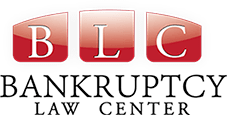American Medical Costs and Bankruptcy
More than 60% of American filing for bankruptcy do so as a result of the financial impacts of health issues. This includes both the astronomical costs of healthcare, even with insurance, and the time off work caused by some health issues. In fact, residents of the United States can expect to pay far more for health care than any other nation in the world. It is not overly surprising, then, that medical debt might push Americans to file for bankruptcy. Know what is involved in American medical costs and bankruptcy.
The good news is that medical debt is unsecured debt. In other words, you did not have to put up any collateral in order to receive medical treatment. This means that your medical debts, including any medical expenses placed on a credit card, will likely be forgiven through your bankruptcy case. Make sure you invest in a good San Diego California bankruptcy lawyer.
Medical Debt and Bankruptcy
Depending on your bankruptcy choices, you may need to sell some property or commit to handing over your disposable income for three to five years, however. Keep in mind that many medical debts are not reported to credit agencies immediately and that medical debt is not weighed as heavily against your credit as other kinds of debts in credit score formulas. It is essential to discuss your situation with a bankruptcy attorney San Diego California prior to filing to ensure that the benefits of bankruptcy outweigh the hardships for you.
Bankruptcy Options
The most common forms of bankruptcy filed by individuals are Chapter 7 and Chapter 13. Both options can reduce or eliminate your medical debts, but there are some important differences. Choose bankruptcy lawyer San Diego California professionals to deal with chapter 7 and 13 cases.
A Chapter 7 bankruptcy is sometimes referred to as a liquidation. This is because it requires the sale of some of your property. The proceeds from the sale are applied to your debts and any remaining qualifying debts are forgiven. However, you do not have to give up all of your property. California law allows for certain exemptions from the Chapter 7 sale based on the equity, or difference between the item’s worth and what you owe. Those exemptions vary by age and other circumstances, but may include:
- $29,275 – $175,000 – Home
- $3,325 – $5,850 – Vehicles
- Household items
- Jewelry and heirlooms
- Retirement payments or pensions
- $8,725 in uniforms and materials necessary for work
- Up to $30,825 in “wildcard” exemptions
Not all people filing for bankruptcy qualify for a Chapter 7 bankruptcy, since your income and expense levels must meet certain requirements. A Chapter 13 bankruptcy may be a better option for you if you are able to pay some, but not all, of your debts. This is because Chapter 13 bankruptcy does not eliminate debts by selling off property to make partial payments, but instead reorganizes debt. High priority debts, such as child support, are required to be paid in full, while other debts must simply be partially paid over the three or five-year payment plan created in Chapter 13 bankruptcy. You will be required to allocate all of your disposable income to debt repayment for that time period, after which your medical debts will be eliminated, even if you did not pay the full amount. Only San Diego California bankruptcy attorney can help you with such cases.
Contact an Attorney Today
The experienced attorneys at BLC Law Center can help you to overcome your medical debts. Whether or not bankruptcy is the best option for you, we will assist you in fighting to get back on your feet financially as quickly and effectively as possible.
(image courtesy of Haley Lawrence)





